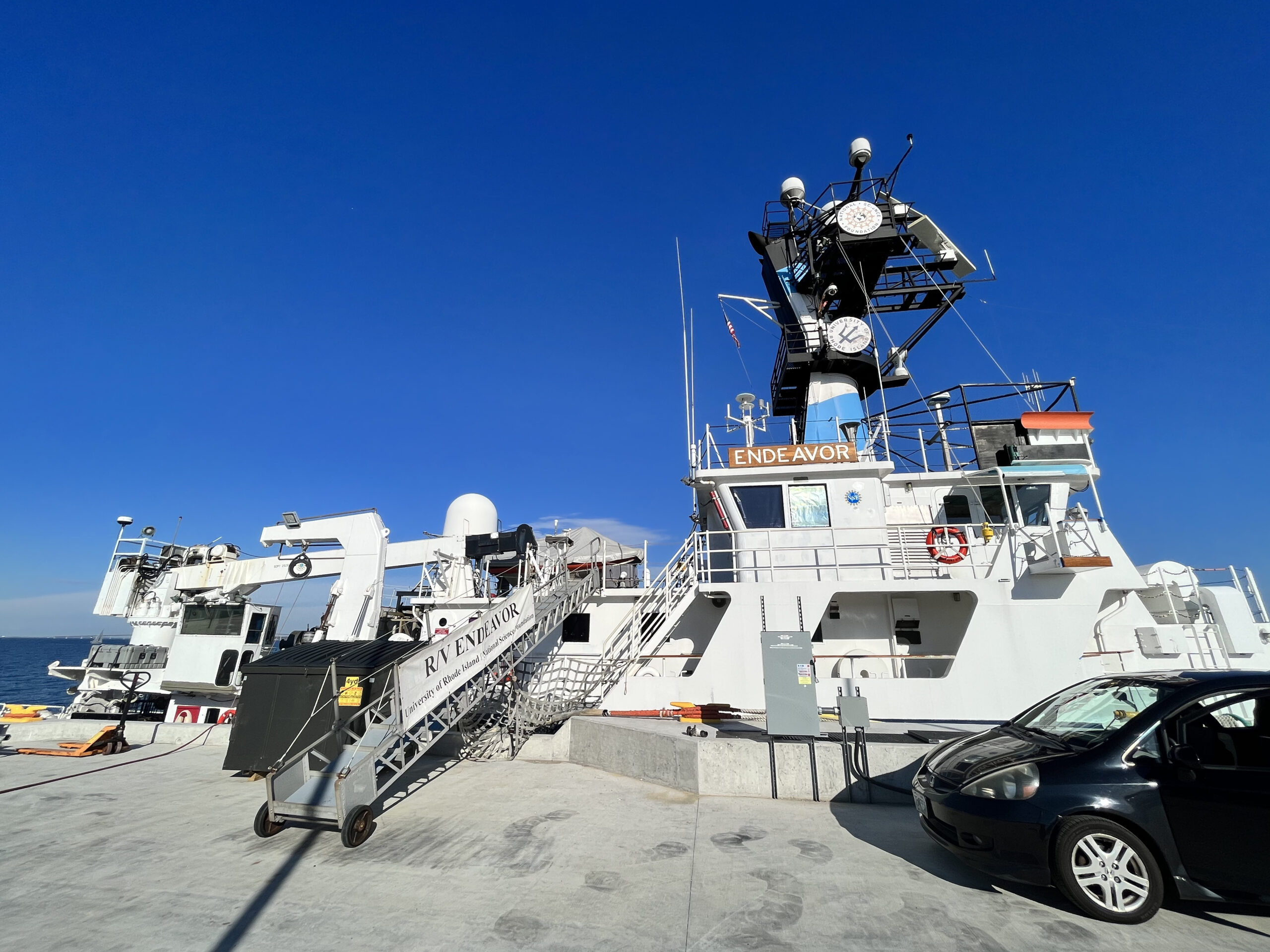The annual Ocean Classroom (Rhode Island Teachers At Sea) cruise is set to take off on the RV Endeavor, a research vessel, on Nov. 17, and will return on the 19th.
The Teachers at Sea program takes 12 Rhode Island teachers, who teach grades K-12, out on the Endeavor for two nights to experience how a scientist works in the field and to translate their work into an appropriate level for their students.
For the past eight years, Professor of Oceanography David Smith has been the chief scientist on this trip.
According to Smith, the Endeavor takes off Friday morning to a spot outside Narragansett Bay called the Mud Hole. There, the teachers will collect sediment and plankton samples. They will also employ the CTD-rosette, an instrument that samples the water and measures salinity, temperature and depth.
The experiments are meant to teach the educators about current research scientists are doing, or to introduce concepts that could be taught in K-12 classrooms.
“Some of the efforts that we’ve put in the last couple of years have focused on how the ocean is key in Earth’s climate, and how the ocean is buffering the climate now that we’ve added more carbon dioxide to the air,” Smith said.
On the second day of the cruise, Smith and the teachers will sail to the shelf break, which is where the continental shelf drops off into deeper ocean water. This point is 100 miles offshore, and has 2000 meters of water depth.
Smith and the teachers will perform the same tests at this location and compare the results from the shallow water at the mud hole to the deeper water at the shelf break.
The last day of the trip takes the teachers to a wind farm off the coast of Block Island. This is the first offshore wind farm in the United States, Smith explained.
To prepare for the trip, Smith works with the marine technicians to prepare the Endeavor for the specific experiments the teachers will perform.
“The crew of the ship are incredibly accommodating of the teachers in terms of knowing they’ve never done this before, and help them understand how the ship operates,” Smith said.
At the end of each day, Smith has a group discussion with the teachers and asks how they can teach their students about the ocean and how scientists collect data.
“It’s very interesting for me to see how an elementary school teacher is working with a high school teacher, talking about the same things, but they have very different audiences to explain these concepts to,” Smith said.
Andrea Gingras, assistant director for the Graduate School of Oceanography’s Public Engagement Office, is the coordinator for the Rhode Island Teachers at Sea program. Gingras reviews the teachers’ applications along with Peter Hanlon, director of the Public Engagement Office.
Gingras explained that teachers who are interested in this program fill out a basic application with personal information and where and what subject they teach. They also answer open-ended questions about why they want to be a teacher at sea and how they would implement the information learned on this trip into their classroom.
“We want to make sure we’re varying in grades they teach and towns in Rhode Island, as well as taking into account their interest,” Gingras said.
After the 12 teachers are selected, Gingras prepares them for the cruise.
According to Gingras, the teachers attend a pre-cruise meeting before going on the trip. The crew of the ship provide the teachers with information about what to expect from the cruise. They also go over what the teachers should pack, and what to do in case of seasickness.
Once they come back from their cruise, Gingras meets with the teachers to make lesson plans and take information from the experiments into activities appropriate for different grade levels.
“The cruise itself is the main component of the program, but we’re still working with the teachers and hoping that they create a community and continue their conversations,” Gingras said.
The Rhode Island Endeavor Program, which includes the Teachers at Sea trip, is funded by the state of Rhode Island. This grant gives the university money to use the Endeavor for research purposes, and for education through this cruise.





